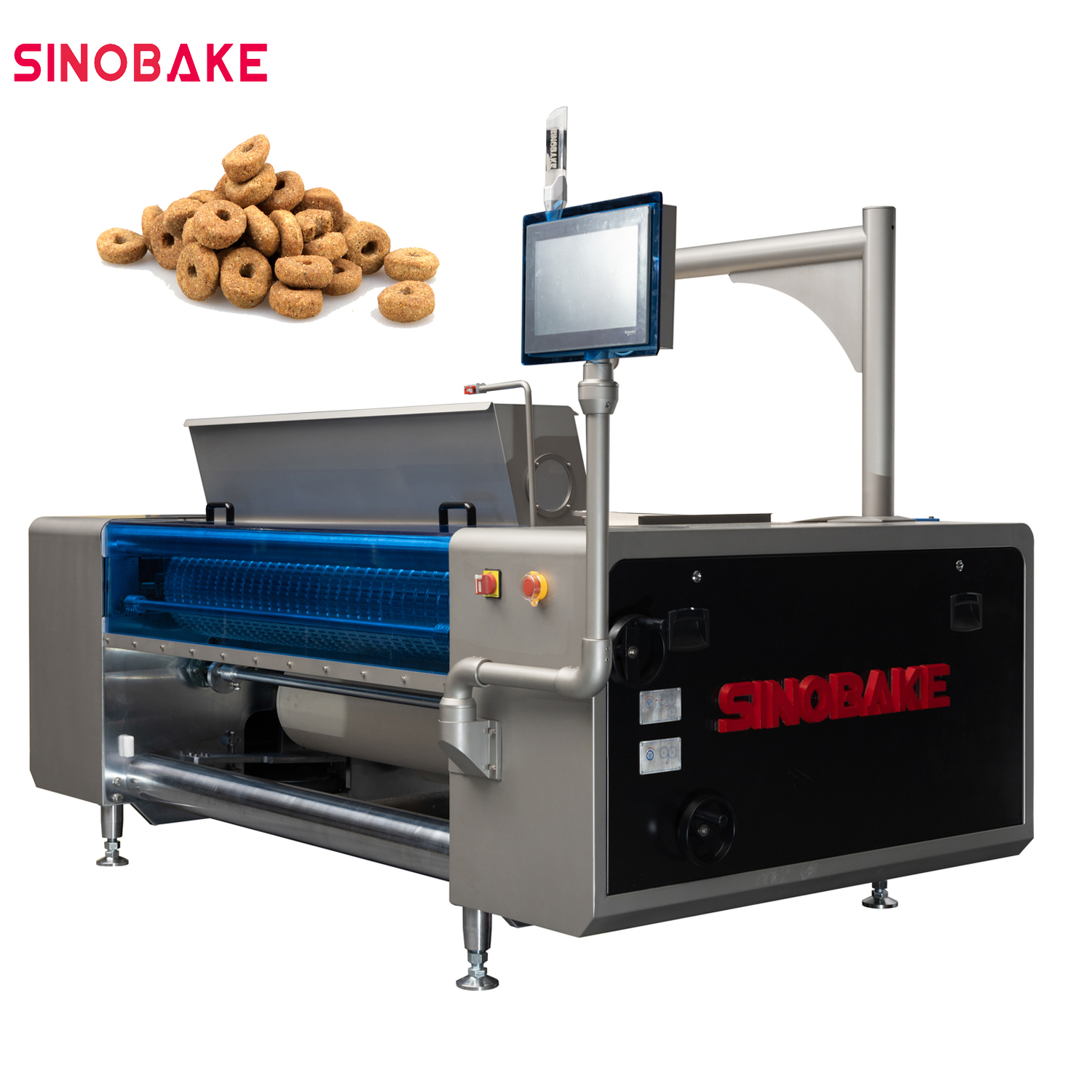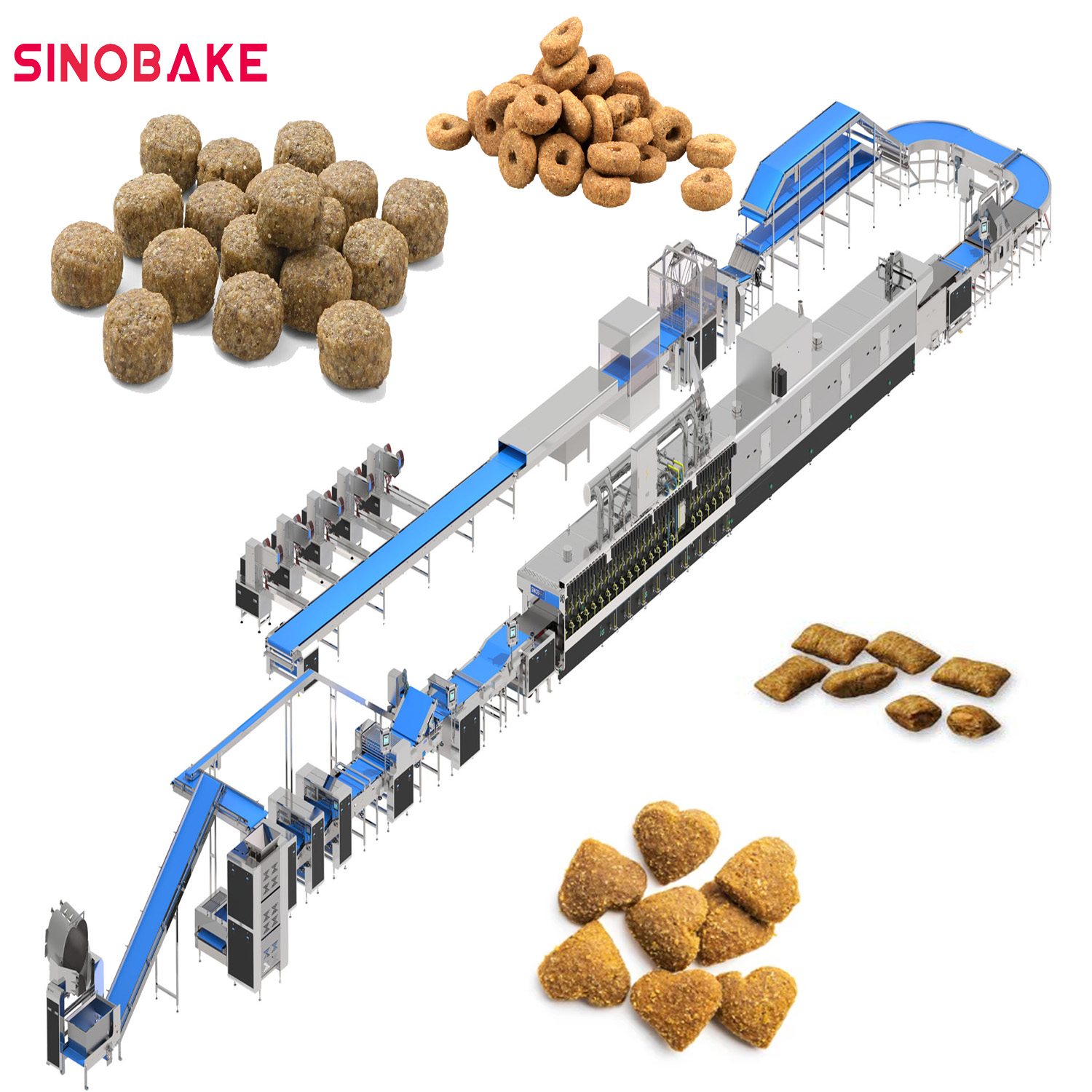+86 13794640490 info@sinobake.net
Views: 0 Author: Site Editor Publish Time: 2023-11-24 Origin: Site








Pet Food Machinery Production Line
Production lines for dry dog and cat food typically cover a series of process steps to ensure the product meets the nutritional needs of pets, tastes good, and is easy to store and transport. Here are the main steps in a typical dry dog and cat food production line:
Raw material preparation: Purchase high-quality raw materials, including meat, fish, grains, vegetables, vitamins and minerals, etc., to ensure the comprehensive nutrition of the food.
Mixing and grinding: Mix various raw materials and refine them through grinding equipment to ensure the uniformity and fineness of the mixture.
Extrusion and Forming: Forming the mixture through extrusion equipment into specific shapes, such as pellets, blocks, or cakes.
 Rotary Moulder Machine
Rotary Moulder Machine
A rotary moulder machine is a type of equipment used for shaping dough. It typically consists of a rotating drum or mold with various shapes and patterns. The dough is fed into the machine, and as the drum rotates, it shapes the dough into the desired form. This is commonly used in the production of cookies or biscuits where a consistent and specific shape is desired.
Baking or steaming: Baking or steaming the formed pet food to ensure the killing of bacteria, increase the taste of the food, and increase the shelf life of the product.
Coating and Spraying: Vitamins, minerals, oils and other additives can be added at this stage to increase the nutritional value and taste of the food.
Cooling: The cooling process helps solidify the product and ensure it meets specifications.
Packaging: When packaging finished pet food, moisture-proof and anti-oxidation packaging materials are usually used to maintain the freshness and quality of the product.
Quality Inspection: Conduct strict quality inspections, including appearance, taste, nutritional composition and microbial testing to ensure that products comply with relevant standards and regulations

